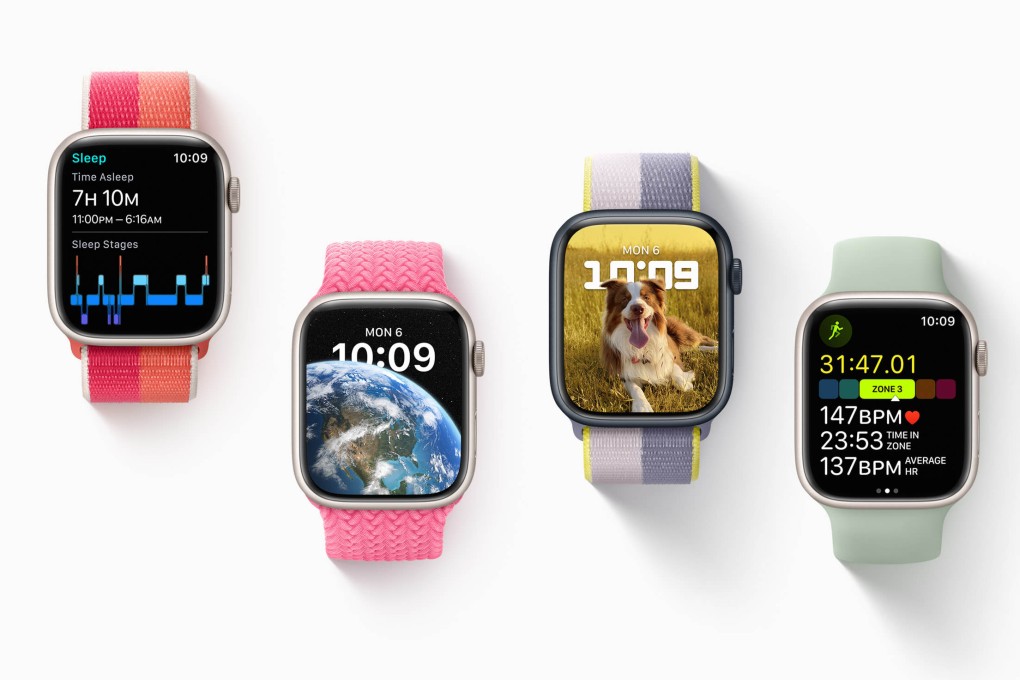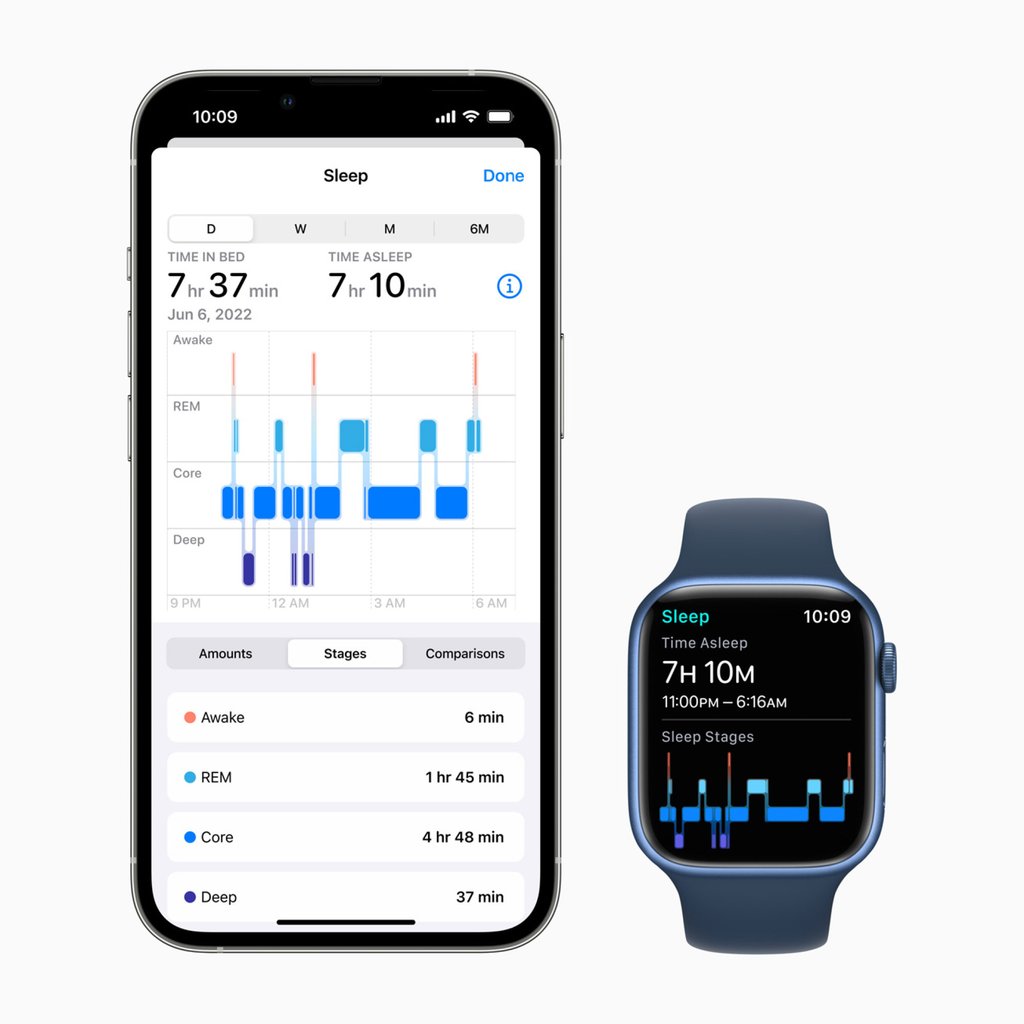Advertisement
With watchOS 9 update, Apple Watch tracks sleep cycle stages and gives you a detailed breakdown. Is this Apple catching up with Fitbit and Samsung?
- The watchOS 9 software launching this autumn will finally allow the Apple Watch to track sleep cycles the way that other wearables have been able to for years
- Apple’s vice-president of health says there’s a reason for the delay – ‘everything we do at Apple is based in science’ and it needed time to get it right
Reading Time:3 minutes
Why you can trust SCMP

It’s often said that Apple is rarely the first to do anything, but when it does do it, it gets it right.
This explains why so many long-existing smartphone features – from the ultra-wide camera to wireless charging and the all-screen design – only became popular after the iPhone began offering them.
It will probably be said again this autumn when the Apple Watch finally gains the ability to track sleep in a proactive manner, which other wearables from the likes of Fitbit and Samsung have been able to do for years.
Advertisement
This new feature won’t be exclusive to a new product – it is part of a software update that will be made freely available for Apple Watch owners going as far back as 2018’s Apple Watch 4.

Technically, the Apple Watch has been able to track sleep for years but the data given was rudimentary and required users to manually set sleep and wake times. To put it bluntly, sleep tracking seemed like an afterthought.
Advertisement
Advertisement
Select Voice
Choose your listening speed
Get through articles 2x faster
1.25x
250 WPM
Slow
Average
Fast
1.25x